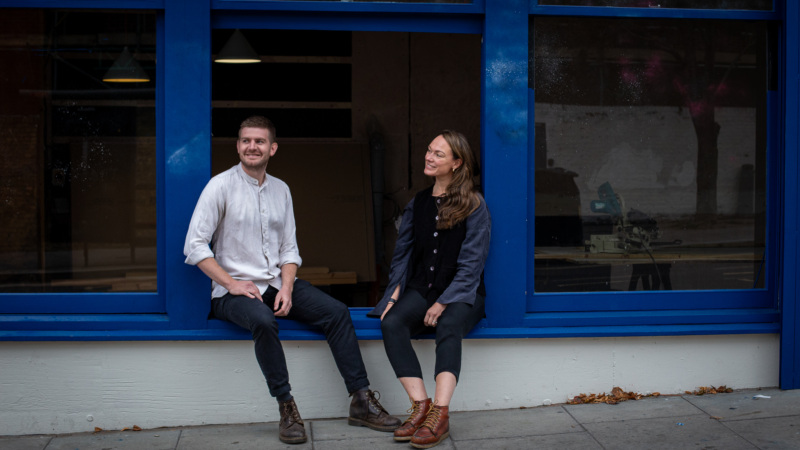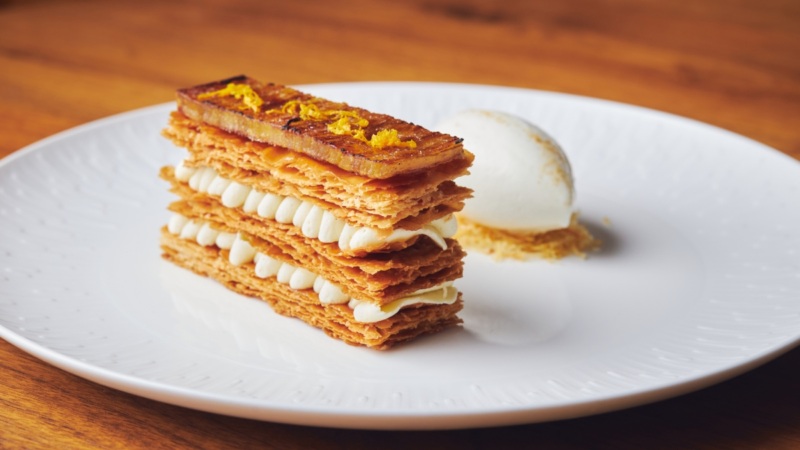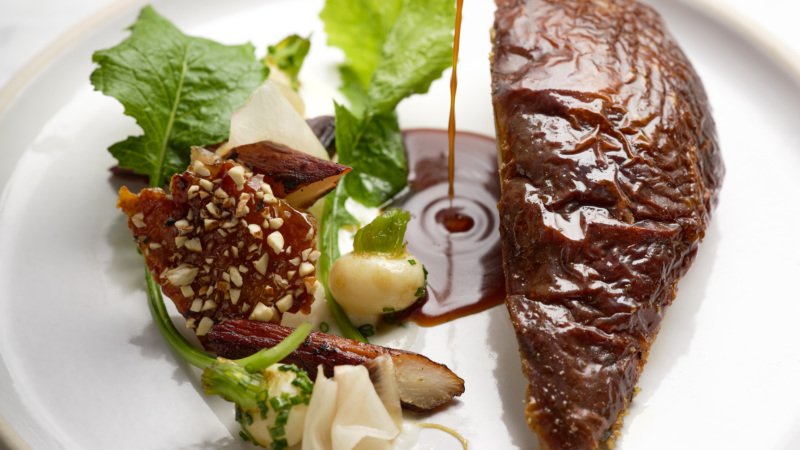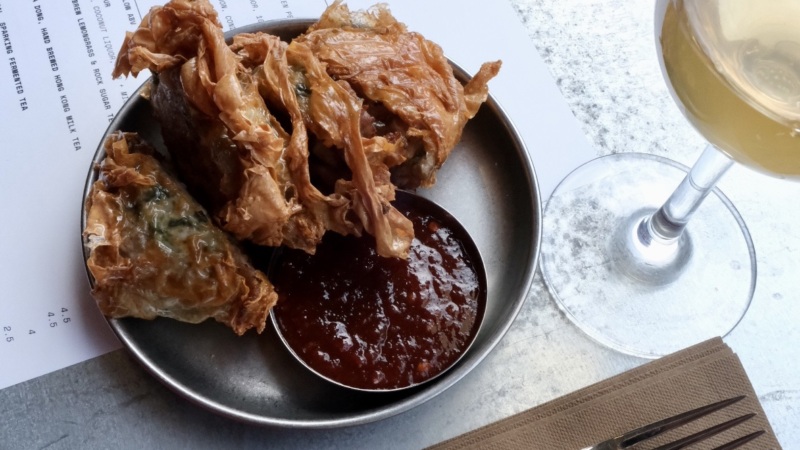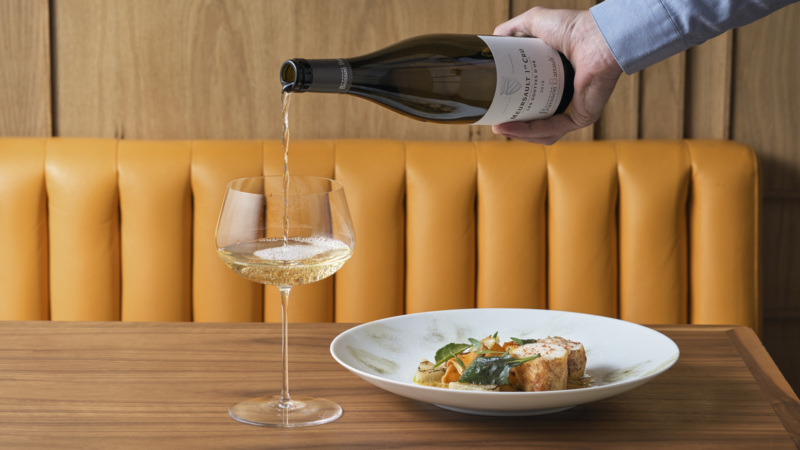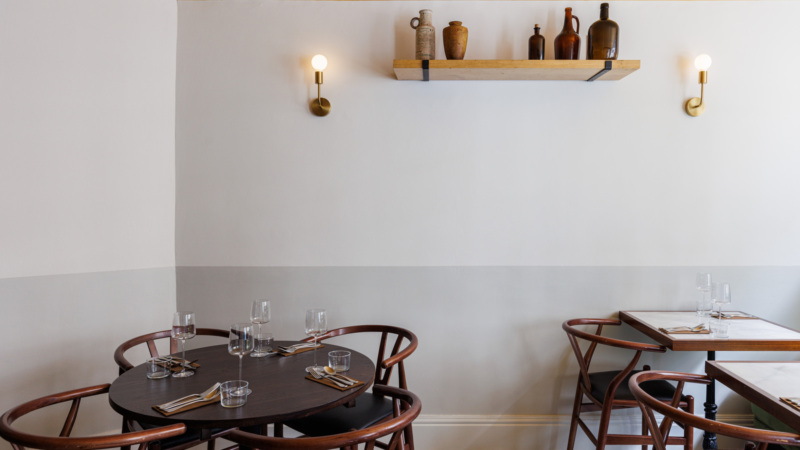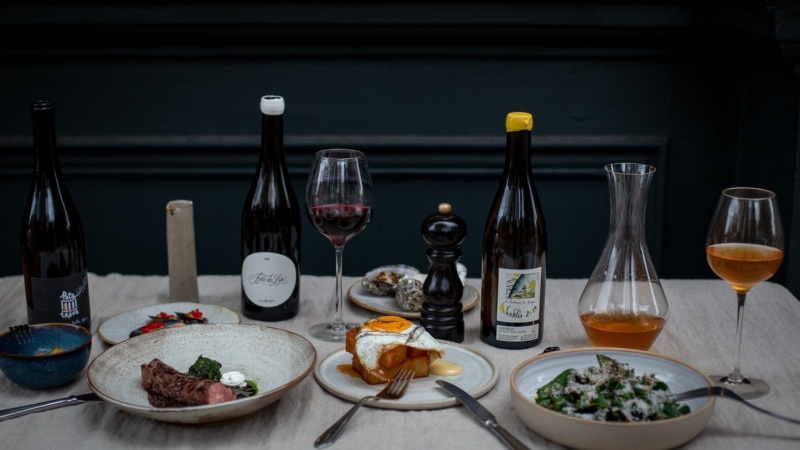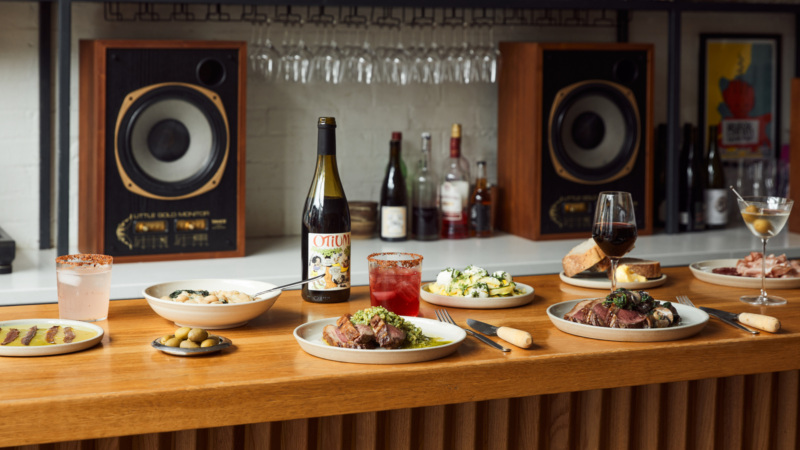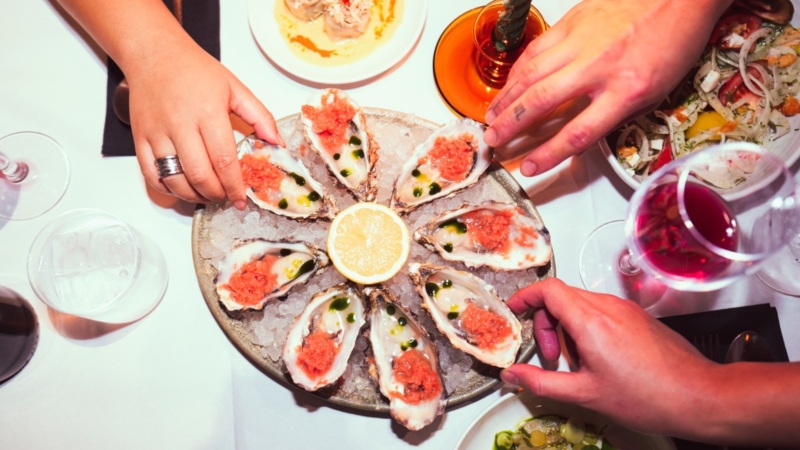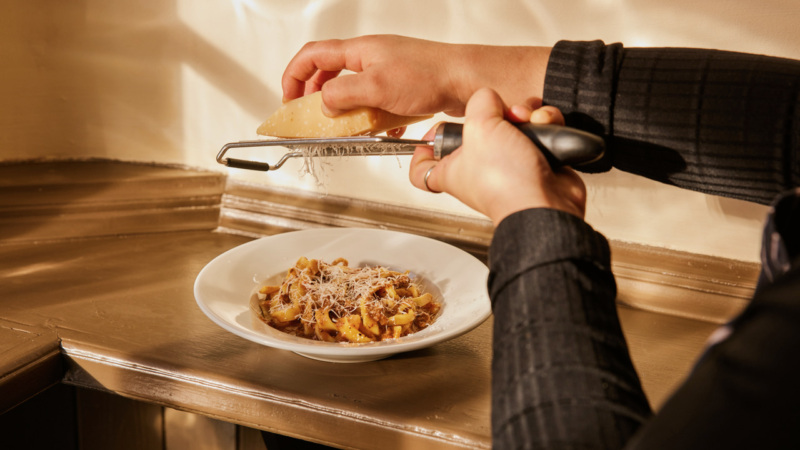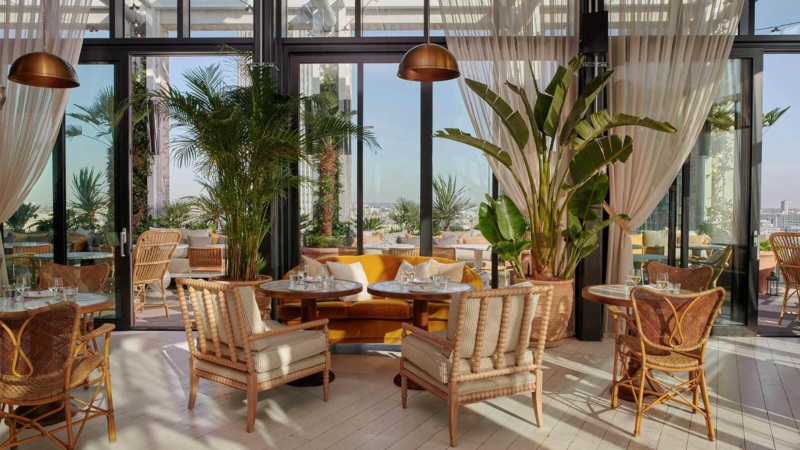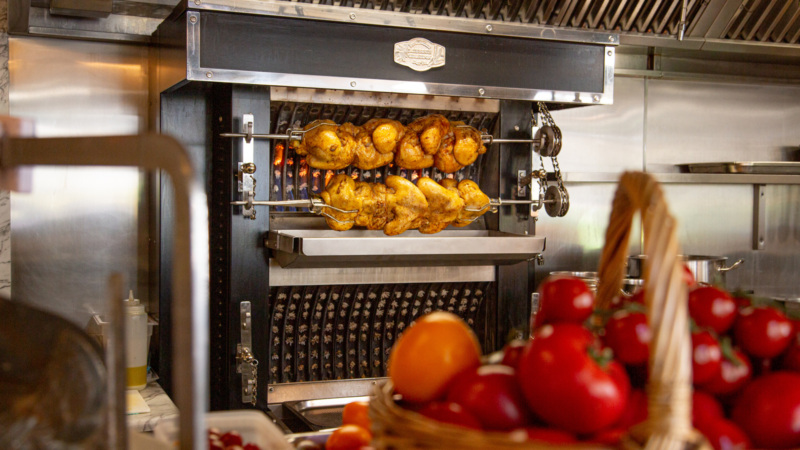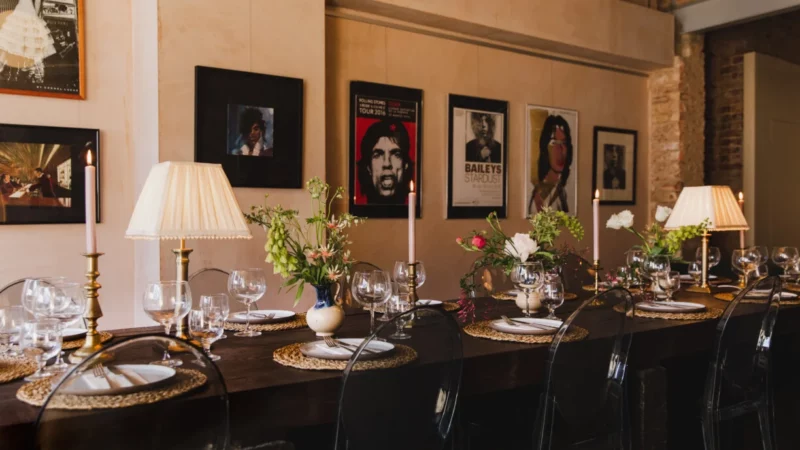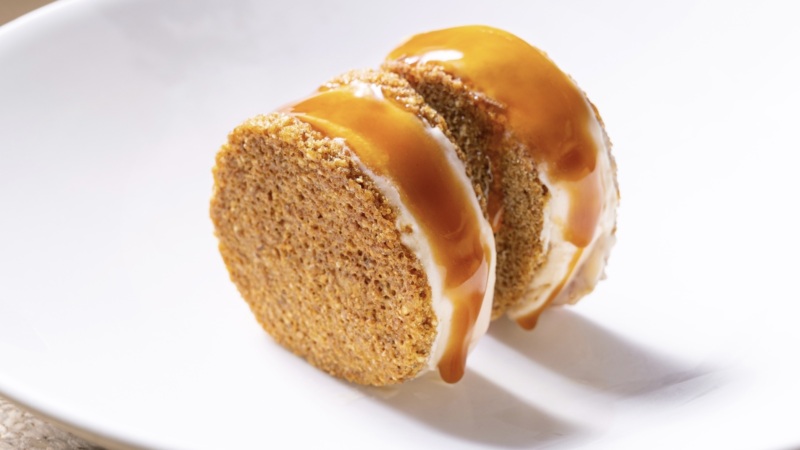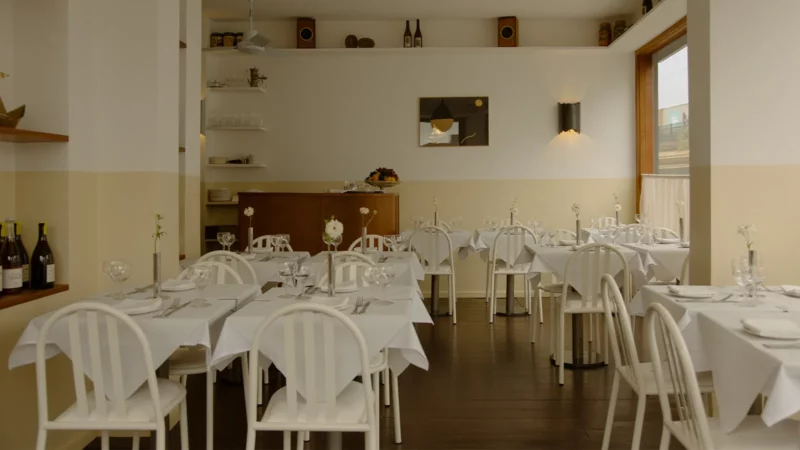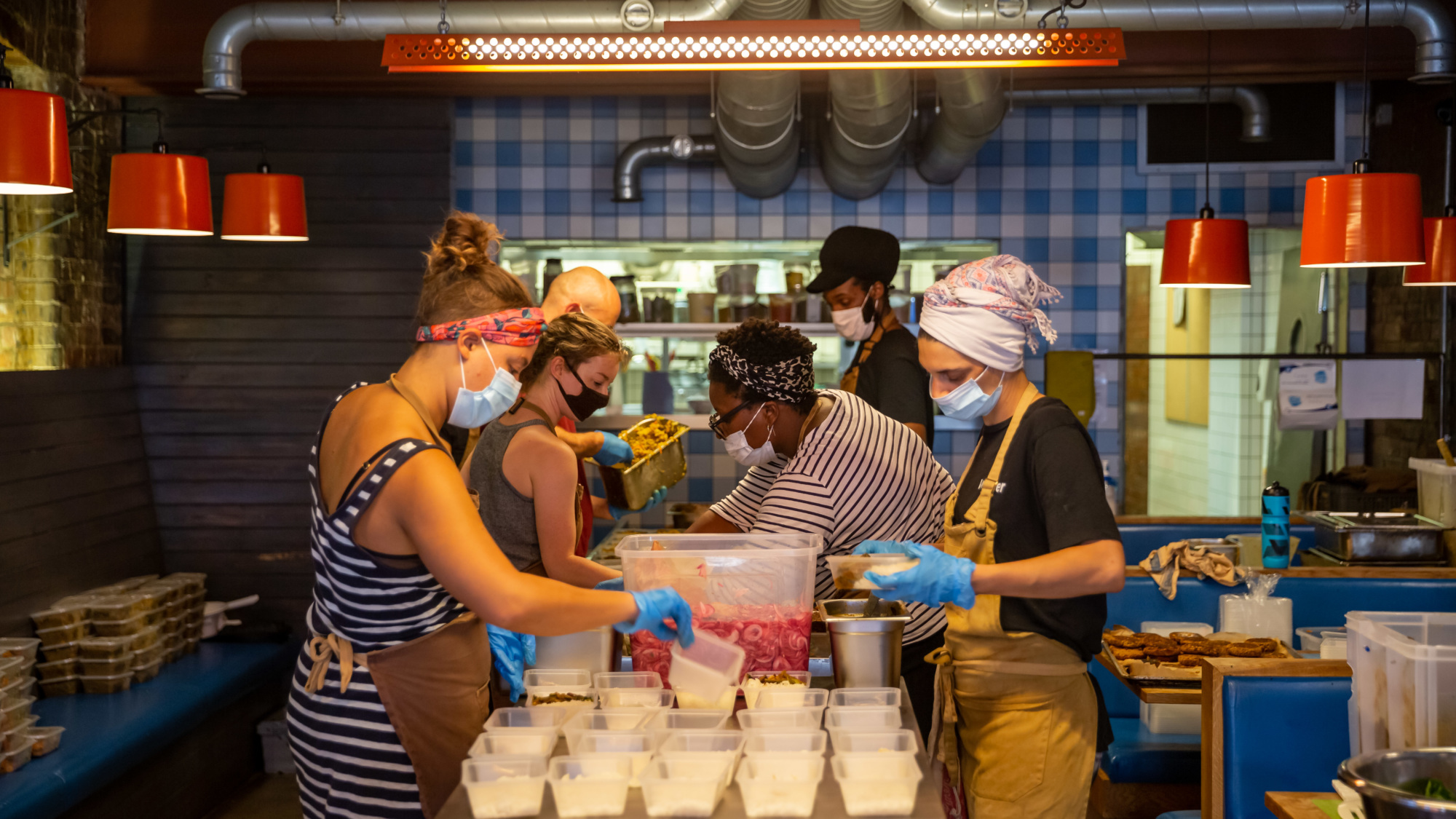
For Many, The Union Between Restaurants and Charities Has Been a Lifeline. So, Where Do We Go From Here?
It’s unsurprising that the connection between London’s restaurants and food charities was a prominent feature in 2020. Restaurants offered space, hospitality, and skilled staff; meanwhile, charities with deep links to communities could ensure that food went to those who needed it most.
But this pairing isn’t one to be taken lightly or seen as a foregone conclusion – the level of organisation needed to be effective is crucial and makes the difference between working for prestige and attention and working to enact change. Over a year on from the first initiatives, with restaurants returning to a semblance of normality, the issue of food inaccessibility hasn’t gone away. So, what’s next?
*****
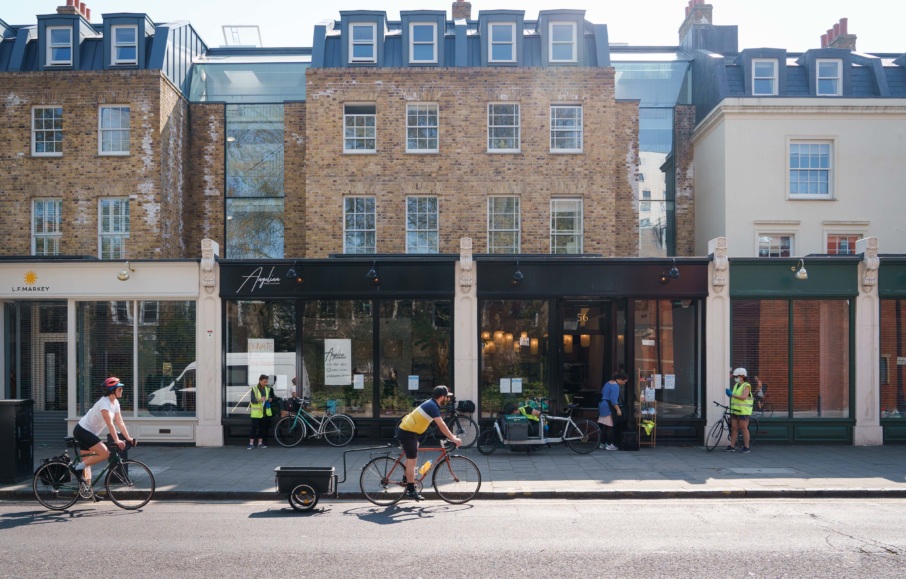
Last March’s lockdown left London’s restaurants in uncertain terms – as well as the sector’s possible financial devastation, the hospitality industry is built on the physicality of being in a space, of using skills centred on being in close proximity to others. Therefore, the necessary shuttering of businesses took away a daily purpose for tight-knit teams and individuals used to operating in practical ways to solve problems. For many, it was a huge shift of identity.
At the same time, another looming crisis was set to hit breaking point – the issue of food accessibility. In 2019 the Trussell Trust released statistics of a 23% increase on food bank use from the year before, a number that has risen each year. As jobs were lost and the ability for people to shop, gather and organise disappeared, the resulting lack of access to food left a growing number of people incredibly vulnerable; in November 2020, the Trussell Trust reported a 47% increase in support over the pandemic.
Some, like the community cooking school Made In Hackney, were able to anticipate the impact, as founder Sarah Bentley noted in 2020, shifting to offer direct-to-door meals ahead of the national lockdown and partnering with nearby restaurant Angelina. While Made in Hackney cancelled its schedule of classes, the restaurant – known for inventive tasting menus – moved to provide 12,000 plant-based meals over the next two months.
“It felt strange to ‘outsource’ the cooking when we’re a community cookery school – but it meant we could focus on outreach, welfare calls, logistics, and fundraising.”
– Sarah Bentley, Made in Hackney
Similarly, William Akman works with Deliver Aid, a charity launched by London-based A&E doctor Jack Manley and partner Charlotte Butter at the start of the first lockdown, with a focus on NHS staff meals. Akman’s awareness of restaurants’ potential to help and be part of the community stems from his project The Triple Cooked Foundation, the launch of which was disrupted by the pandemic. He’s clear in explaining that it is about setting up connections with charities that makes the work possible; a lawyer by trade, he saw a gap.
“We understood that we could take on the responsibility – the admin – from the restaurants; we wanted to invest in results, and not to invest in clout,” he explains. “But we also recognised that getting buy-in from big name chefs and known restaurants was also important to make things happen.” Deliver Aid set up a fundraiser, undertook due diligence on charities, and focused on grass roots organisations, particularly in the areas that the restaurants were located.
Crispin Somerville, co-founder of El Pastor, stresses the importance of getting assistance to the right places. “A friend of mine is a headteacher at a local school in one of the most deprived areas near Kings Cross. She provided invaluable insights into what was needed and by whom, and who could best help distribute,” he says. “What landed with us was the challenge of how to bridge the gap between good intention and effective use of energies.” El Pastor worked with The Kitchen Social, who ensured that they could meet these needs.
*****
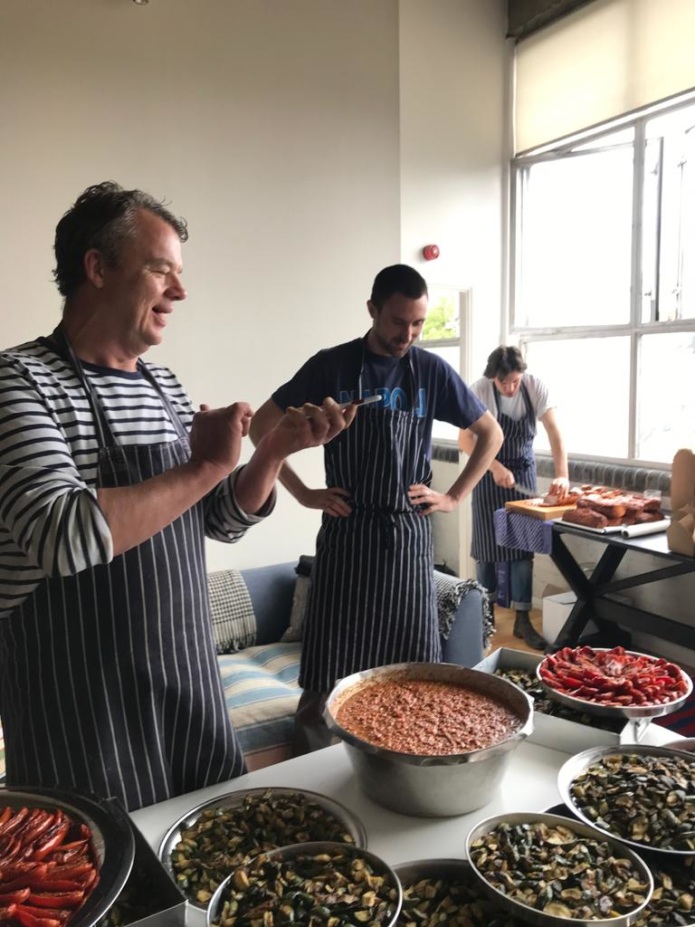
According to Jeremy Lee, chef-proprietor at Quo Vadis, there is some precedence, as many restaurants have always been very active in charity work, but that “curiously, most of the work we do [has involved] grand dinners fundraising for charities,” he says. “Deliver Aid was a godsend.”
Partnering with restaurants can be a practical solution that allows charities to focus on their networks and community connections. Bentley explained that a partnership with Angelina restaurant meant they were able to provide 500 meals a day during those first few months: “It felt strange to essentially ‘outsource’ the cooking when we’re a community cookery school – but it meant we could focus on outreach, welfare calls to our meal recipients, logistics, managing the cycle couriers and also fundraising. Angelina had the equipment, space and skills for mass cooking.”
A key group were NHS staff, who were working extremely long hours and without the usual ability to shop or access canteens. Many restaurants could fulfil this need with ease, but Akman says that while it’s less of a need now, it’s important to not lose focus on wider issues around food access; the government’s refusal to continue the vouchers outside of term time a salient point for this awareness.
Chris Leach, head chef of Manteca, another Deliver Aid partner, notes this as a key moment for the wider public. “As things went over the summer and I would speak to more and more people, I became aware of issues that I hadn’t necessarily been confronted with. And Marcus Rashford, highlighting the government’s decision regarding free school meals, got more people talking and understanding.”
“It is not acceptable that those in an economically precarious situation should be hungry in London in 2021.”
– Crispin Somerville, El Pastor
Meryl Fernandes, co-owner of Hackney pub The Duke of Richmond started a free lunch scheme in October 2020 inspired by Rashford. When the Government’s about face on school lunches demonstrated that the food on offer was heartbreakingly bad, it spurred her on to find a way to provide a service.
“I wanted to give 60 lunches a day out of my personal money, and I posted on Instagram that we would be providing lunches and it went viral. So many of our customers wanted to donate, so I set up a PayPal account and we raised enough money to do 1,200 lunches that week, Monday to Friday,” Fernandes says.
She contacted local schemes and charities, focusing on youth schemes for distribution, with organisations and individuals picking up the lunches from the pub. “The important message we give is that there are no questions asked. We are very aware that this is people’s lives, some people don’t want to talk to us, and some people do. By the end of that first week in October we had built up relationships – and now I see the families in London Fields, the kids wave and chat. It is our community.”
It is important to note that these issues of food insecurity continue to be met time and time again by individuals, independent businesses, and charity work due to the lack of governmental infrastructure, governance, and funding.
Nick Bramham, head chef at Quality Wines and the first to partner with Deliver Aid, says: “It is similarly shaming that the NHS is underfunded to such a degree that it is almost impossible for health workers to access nutritious food in hospital canteens – especially so during this time.”
So, where are we now? With the hospitality industry opening and the schedule for all restrictions to be dropped in mid-July accompanied by the issue of staff shortages, is this vital relationship between restaurants and charities still viable?
*****

With over a year of hard-won experience to look back on, today restaurants are in a better position to understand and realise how much they are a part of the fabric of their communities — both their immediate areas but also the wider London community. This means that there’s likely to be a continued effort to be engaged in those communities, and with the creativity of hospitality professionals, these efforts will continue to grow and change as restaurants adapt to a new world.
Fernandes explained that with her and her partner, Tom Oldroyd (the pub’s chef-proprietor) back working full time, they don’t have the time to prep school lunches. Instead, they donate to local organisations able to do so, such as Hackney Food Bank. Through her work, Fernandes connected with various charities, people, and organisations within the community, allowing her to spend time connecting the dots, from getting an iPad to someone without the means but the need to connect to alerting people about food bank shortages.
But they still respond when they can. “We did have one organisation that really needed 100 lunches, and I just can’t turn that down. Therefore, before travelling for work, Freddie [her four-year-old daughter] and I packed 50 lunches, and when I got back, another 50. Freddie puts stickers on all the packs.” Social media plays a big part in connecting people and Meryl’s following allows her to reach a lot of people and activate different networks.
What this ultimately speaks to is the fact that restaurants are, and should be seen as, vital parts of the communities they exist in.
Deliver Aid are looking to create a dedicated space – akin to a dark kitchen – that people within the restaurant industry can work from. Akman explains that there should be space within the sector to have time for this work, such as creating structures that are like corporates’ CSR programmes. He also explains that a lot of Deliver Aid’s work continues to focus on finding and doing due diligence on grass roots organisations, allowing donors to know exactly what and where their help is going.
And though Made In Hackney’s partnership with Angelina ended its original iteration in July 2020, the support has continued with a loan of an oven, fundraising nights, and help from the restaurant’s PR company. “They still keep thinking of ways to support us. They’re awesome.” Bentley enthuses. The company is also sharing space with The Queen of Hoxton pub two days a week to run the meal service from, and allowed storage and refrigeration space, which is critical to the operation.
*****
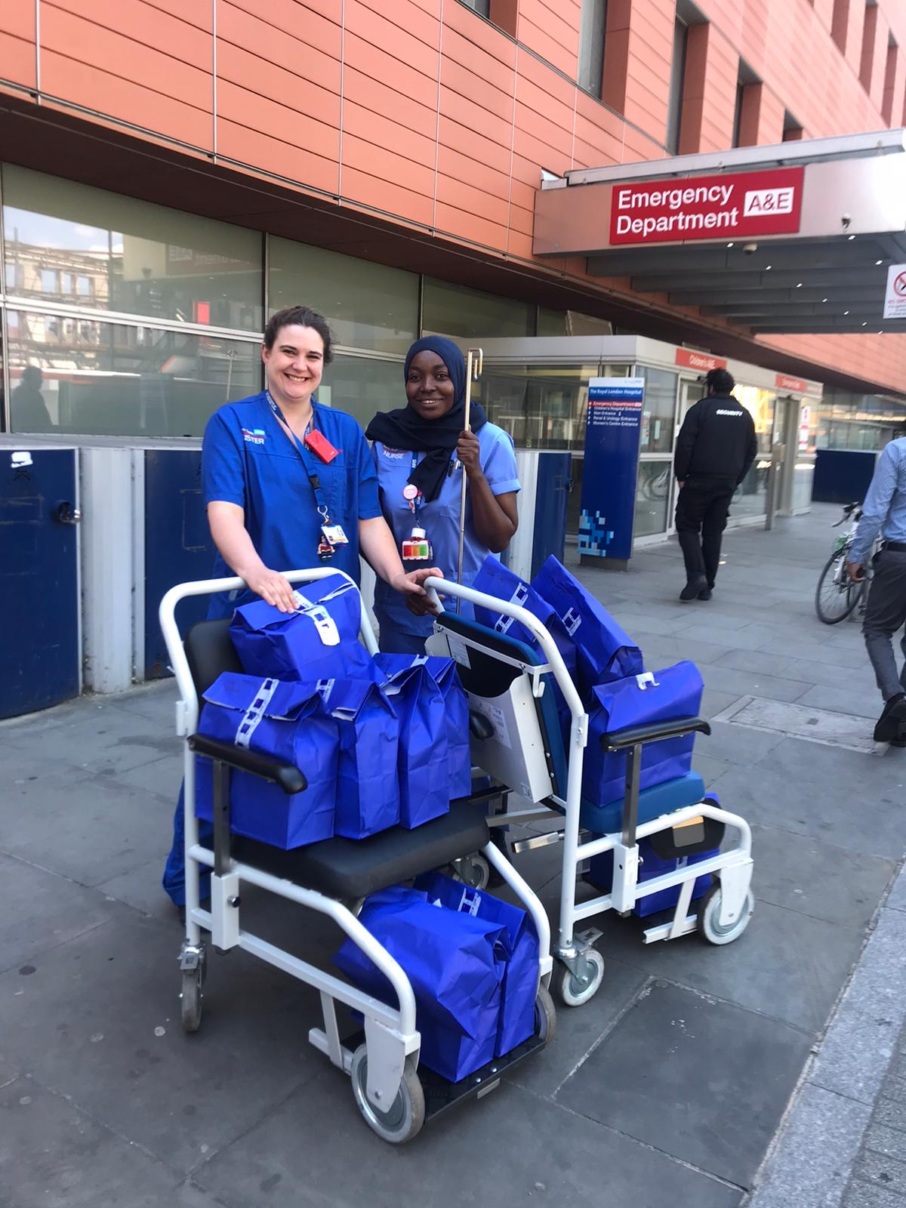
The work has been a learning experience for the entire hospitality industry. “I am from East London, so I am aware of some of the issues and am always very conscious about the privilege of owning a pub in Hackney,” says Fernandes. “But it has been an eye opener. I had no idea the uptake was going to be so big.”
Effective work needs real connections and knowledge of the community affected. It isn’t about setting up new projects but working with those already on the ground who understand the detail and nuances of communities. So much of charity work is getting the admin and logistics right, and restaurants can support that work in practical ways, from space and volunteering to mobilising a customer base to assist fundraising efforts.
Bramham notes that many diaspora restaurants already function as anchors in a community, and other restaurants who in the last year have stepped up and/or strengthened community connections have been able to survive – thrive even – in comparison to “soulless chains and places that lack personal bonds”.
What this ultimately speaks to is the fact that restaurants are, and should be seen as, vital parts of the communities they exist in. It is also crucial to note that their guests and suppliers are also part of the community and often want to be involved; for example, The Duke of Richmond has also raised money for the COVID-19 crisis in India and Black Minds Matter, and Fernandes explained that often guests want to know how and where they can help – for a wide range of causes – therefore providing a platform is helpful.
“The word ‘restaurant’ comes from the word ‘to restore’, to be restorative,” Akman says. “That is where the community work comes into that equation.” Fernandes explains that although it is hard to plan ahead – they are taking everything day by day – charity work and running a business must go hand in hand; and while pubs have traditionally always been community hubs, this has gotten lost at times. It is this ethos that she wants to ensure is at the heart of their business.
“We look after the community; the community looks after us.”
Anna Sulan Masing is a London-based writer and academic, and a co-founder of Sourced Journeys and Cheese Magazine. Follow her on Twitter and Instagram. Follow Resy, too.
- Emma Underwood on Why the Conversation About Safety for Female Workers is Urgent
- Through the Pandemic, Restaurants Have Supported Others. They Deserve the Same Support in Return
- London’s Restaurants Have Reopened Again. So, What’s Different This Time?
- Quality Wines’ Nick Bramham Adores Classic Cocktails, Dreams of Dim Sum at Phoenix Palace
- Susie Lau’s Personal Guide to London’s Chinatown

